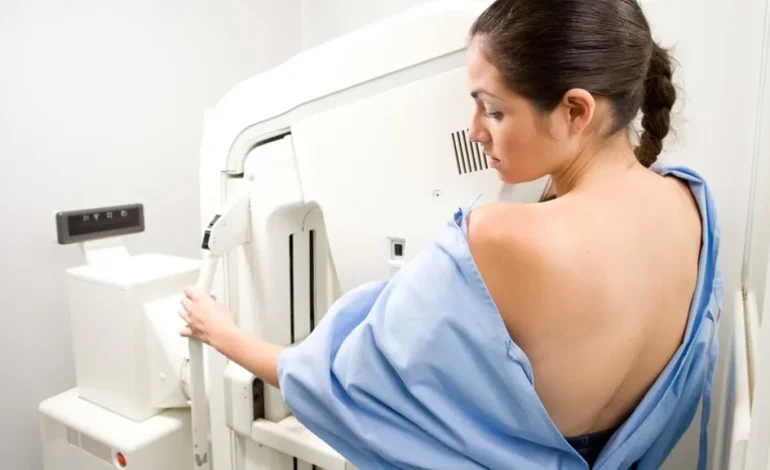Recent research suggests that women with dense breast tissue may benefit significantly from additional breast cancer screening beyond standard mammograms.
A clinical trial conducted in the UK found that adding specialized imaging tests could more than triple the detection rate of breast cancer in this group.
Breast density refers to the amount of fibrous and glandular tissue compared to fatty tissue in the breasts. Approximately 10% of women aged 50 to 70 have very dense breasts, a factor that not only increases breast cancer risk but also makes tumors harder to detect with regular mammograms. Dense tissue appears white on mammograms, the same color as potential tumors, which can mask abnormalities.
Louise Duffield, a 60-year-old participant in the trial, experienced this firsthand. Although her mammogram appeared normal, an additional MRI scan revealed a small tumor deep within her breast. Thanks to early detection through this extra scan, she received prompt treatment and is now cancer-free.
The trial involved nearly 9,400 women with dense breasts who had a clean mammogram result. Three-quarters of the participants were randomly assigned to one of three additional screening methods: contrast-enhanced mammography (CEM), abbreviated magnetic resonance imaging (AB-MRI), or automated whole breast ultrasound (ABUS). The remaining women continued with standard mammograms only.
Results showed that for every 1,000 women screened:
CEM detected 19 cancers,
AB-MRI detected 17 cancers,
ABUS detected 4 cancers.
In comparison, standard mammograms detect about 8 cancers per 1,000 women with dense breasts. This means that CEM and AB-MRI detected more than twice the number of cancers compared to mammograms alone, while ABUS was less effective.
CEM and AB-MRI use injected contrast dyes to highlight tumors by making blood vessels more visible, improving cancer detection in dense breast tissue. Researchers recommend considering these additional scans for women with dense breasts to increase early diagnosis rates.
Lead researcher Dr. Fiona Gilbert from the University of Cambridge emphasized the importance of early cancer detection, noting that it greatly improves treatment outcomes and survival chances. Senior researcher Stephen Duffy from Queen Mary University in London added that while more studies are needed to confirm these findings fully, the current results are promising.
Currently, breast cancer screening guidelines in the US and UK do not differentiate recommendations based on breast density, although US regulations require that women be informed of their breast density. This study suggests that tailored screening protocols for women with dense breasts could potentially save lives.
Duffield’s experience highlights the value of such research and screening advances. After her MRI identified the tumor, she underwent biopsy, surgery, and radiation therapy, all within a short timeframe, which doctors believe contributed to a positive outcome.
With input from US News & World Report.










The latest news in your social feeds
Subscribe to our social media platforms to stay tuned